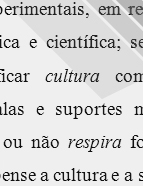

................................
In the 19th and 20th centuries, the encyclopaedic task saw advances: the Dicionário Universal Ilustrado [Universal Illustrated Dictionary], for example, was succeeded in the mid-20th century by the Grande Enciclopédia Portuguesa e Brasileira [Great Portuguese and Brazilian Encyclopaedia], the most extensive informative repository, both biobibliographical and thematic, and still useful today for the propaedeutics of cultural research up to that era. A notable leap in quality was achieved with the Dicionário de História de Portugal [Dictionary of the History of Portugal] edited by Joel Serrão (1963-1971), which translated and introduced advancements in academic creation, opening new horizons in the field of economic and social history, clearly influenced by the Annales School. This work was supplemented in 1999 by A. Barreto and M. F. Mónica to cover the Estado Novo period, but here from the perspective of sociology and political science, making it a useful tool for those dedicated to historiographical research on culture, cultural movements, and intellectuals, although these topics do not find their core focus therein. It is also noteworthy that for the first time, D. Peres' História de Portugal [History of Portugal] (1929-58) includes chapters on "cultural institutions," authored by J. Carvalho, as a counterbalance to the hegemonic political and factual history, distancing itself from the apologetic history (J. Ameal, C. Beirão, A. Pimenta) that was normative during the Estado Novo and from the ontologising tendency that "culturalism" (Delfim Santos, Á. Ribeiro) was beginning to outline. This culturalism promoted ahistorical readings of identity based on other teleological and eschatological overdeterminations, stripping history of what it intrinsically possesses—histor, the anthropological testimony of time. As for synthetic proposals, the boom of Histories of Portugal in the 1980s and 90s brought forth methodologies and perspectives that were radically different, if not opposed: the "new history," which shifts cultural history towards intellectual and social movements (eds.: A. Reis, A. H. de Oliveira Marques, Id. and Joel Serrão, J. Medina); the embryonic postmodern (or post-serial) history, which analyses the diachrony of ideas in genealogical and cross-cutting dimensions (ed.: J. Mattoso); and the political history with its "national" succession (J. Veríssimo Serrão, J. H. Saraiva), factualist and haecceitic in historiographical treatments, isolating the historicity of culture in episodic events or reading it in the sarcophagus of the "national destiny."
